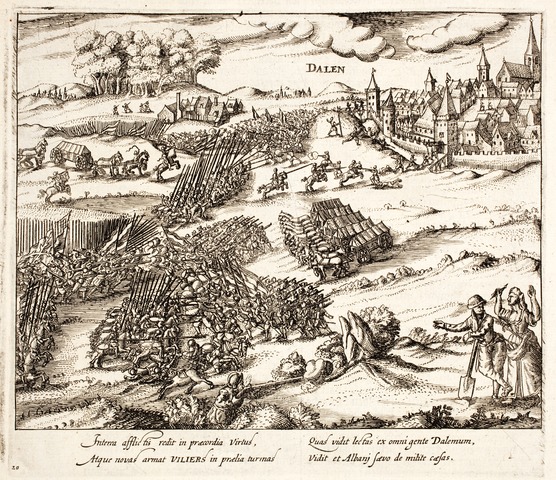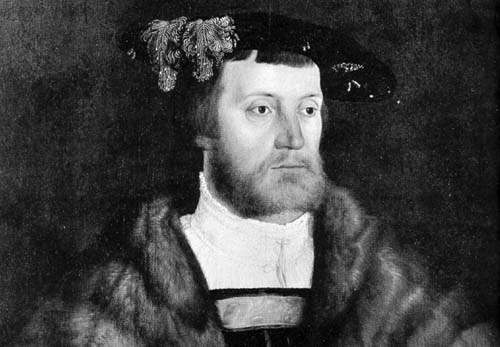The Danish Oldenburgs and the Vasa if they are smart should at this point start thinking about working together, because no matter how much they hate each other they really should fear the Habsburg-Oldenburgs and the threat they pose more. I however can easily see France, which IOTL worked with the protestant princes in the HRE somewhat during this period to hamstring the Habsburgs, working with the Nordic protestants to try and surround the HRE. They could justify that by pointing out the Habsburg-Oldenburgs and the HRE is ultimately a bigger problem than the weak protestant kingdoms of Scandinavia and that they're being pragmatic if the Papacy questions them about it.
Also the Danish Oldenburgs should probably send Christian II back to his son in the hopes that'll appease the Habsburg-Oldenburgs enough for them not to be seriously gunning for them. Even if that doesn't work, it'll at least take a way a cause belli for the Habsburg-Oldenburgs against them.
Also I imagine that the entire HRE falling into heresy is going to start causing a large segment of the Catholic hierarchy to start clamoring for a proper church council in earnest to deal with the protestants now that they are in control of one of the main powers of Europe and must now be acknowledged as a major threat to the Catholic Church.
The main problem with the French allying with Lutherans ITTL is that King Francis has been setting himself up as the Defender of the Church and as the main supporter of the church, as compared to OTL where he allied with the Ottomans and Protestants. ITTL it simply isn't feasible for Francis to support the Danish Oldenburgs or the Vasa - it would do too much damage to his relations with the church. And again, there is a big thing happening at this point in time which is drawing most of France's attentions away from the Empire. That said, the Danish Oldenburgs and the Vasa are in talks to develop some sort of alliance against the Emperor but that will take some time.
Christian II is seen as too much of a threat to let return to the Empire. Further, he is viewed as a warmonger and a general threat to Danish security which is why they can't let him go. Even if it removed one casus belli, there is nothing to stop Johannes from retaking his homeland and the throne he views as rightfully his.
The fall of the Holy Roman Empire to heresy will send shockwaves through the Catholic Church and a proper church council to resolve those tensions is in the works, but there are a number of issues which mean it will take some time to arrange. Most importantly, Pope Clement is on his last legs.
This could wind up making the Thirty Years War look like a spring walk in the park...
Derekc has it right here. The civil war in the HRE ended within two years and with nothing like the losses of OTL's 30YW. I think a better comparison would be the Schkmaldik War, with the Emperor sweeping all resistance before him. The important thing to note is that fortifications are largely medieval in nature across much of Germany at this point in time and as such battles rather than sieges predominate - leading to much quicker resolutions to the conflict.
Nah, the HRE in this case isn't going to be going through a massive civil war that slaughtered about a fourth of Germany's population. I honestly can't see any religious wars ITTL topping that, not with the Catholic opposition of the Empire decisively broken. Instead they'd "merely" would have to worry about foreign invasions based on religious fanaticism.
Also I imagine that the French monarchy are going to use the fact the HRE is now decidedly protestant as further propaganda against the protestants of France to claim they're "agents of the Empire" when they start really start the Counter-Reformation in earnest.
Reformists in France are not going to have a fun time, but there are several key factors which hold Francis back from really moving against protestants. Namely, both his sister and daughter-in-law are highly protective of reformers and are the dominant forces at the French court at this point in time. The arrival of the portuguese princesses leads to an important shift in this regard, but at this point in time the upper nobility is largely excluded from the persecutions as long as they are a bit circumspect about their beliefs. The same cannot be said of the lower classes. The accusation that reformers or allies of reformers are agents of the empire or the like will play a role in the future, but once again - there are things happening right at this point in time which push much of this to the backburner.
Well, here goes Europe...
Europe is in for a fun time and I really look forward sharing the ideas I have had. I think that there are several of the events I have lined up which will interest people.




